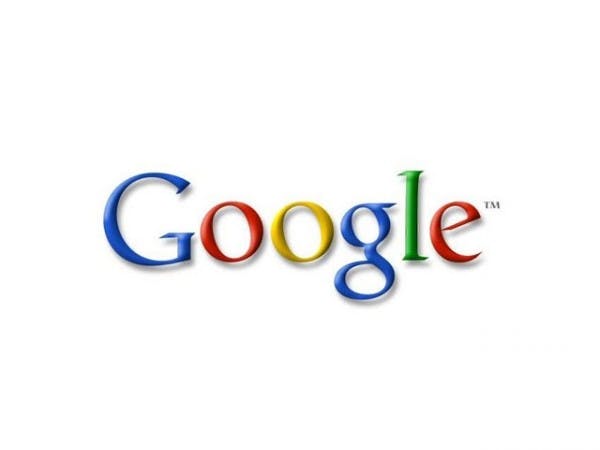When it comes to tech giants, Google Inc (NASDAQ:GOOG) is as complex as it is confusing. Although still reliant on its search engine for the majority of the its profits, the company is involved all sorts of different businesses.
Many commentators and investors alike have been dumbfounded by the company’s corporate strategy. Why does it, for example, give away its Android operating system and forfeit billions in profits? Why is it pouring resources into a desktop operating system with fundamental flaws?

Google is about advertising
Fundamentally, Google’s business model is about selling advertising. To maximize profits, it is in Google’s interest to learn as much as it can about its users. With more information, it can sell more accurately targeted ads, and therefore more expensive ones.
This is why Google Inc (NASDAQ:GOOG) is more than willing to give away email accounts for free. As Microsoft Corporation (NASDAQ:MSFT) points out in a hostile series of ads, Google uses computer software to scan a user’s email, look for key words and phrases, and sell advertising based on email correspondence.
Thus, when looking at Google, one must always keep in mind the company’s larger strategy: get people to use its services so it can sell them highly targeted ads.
Android and the lost profits
Some of the company’s critics have alleged that Google has failed in mobile. Despite its Android operating system being the dominant global smartphone platform, given that Google Inc (NASDAQ:GOOG) gives Android away for free, the amount of money the company actually makes off Android is a paltry sum.
Tech investor Roger McNamee has been critical of Google’s Android for some time. McNamee, in an appearance on Bloomberg, stated that Samsung had done a “masterful job of basically letting Google spend billions developing Android…Samsung is more than 100% of the profits.”
Ignoring the mathematical impossibility of being “more than 100%,” McNamee’s larger point still holds water: Samsung is earning billions on its phones using a free operating system Google Inc (NASDAQ:GOOG) spent billions developing.
But if Google is really getting shafted in this deal, why is there so much talk in the tech community about a possible split between Samsung and Google? Why is Samsung working on Tizen, its own operating system? Those who think that Google is doing Samsung a favor fail to understand the long-term strategy.
Google has invested in Android as a way to preserve its advertising model in the mobile computing world. Someone who uses an Android phone, for example, is highly likely to use gmail, Google Maps, Google Docs, the Chrome web browser, Google Inc (NASDAQ:GOOG)’s search engine and maybe even Google+.
In the long run, this is where the real money is at. As smartphones become a commodity product, the web services behind the devices will be more profitable than the devices themselves.
Google Inc (NASDAQ:GOOG) actually owes Samsung, big time. If Samsung had never created its lineup of Galaxy smartphones, it’s likely that Android never would’ve taken off to the degree it has. Samsung’s phones are seen by many to be the only legitimate competitor to Apple Inc. (NASDAQ:AAPL)’s iPhone.
What’s Chrome OS all about?
Then there’s Chrome OS, Google’s wacky desktop operating system.
Chrome has advanced by leaps and bounds in recent months, but it’s still incredibly limited. A PC running Chrome is virtually worthless without an Internet connection, and Chrome can’t run most non-web-based apps.
When Chrome was unveiled, Microsoft’s CEO Steve Ballmer actually laughed at it. “Who knows what this thing is?” Ballmer asked. “You don’t need two client operating systems.”
Ballmer’s incredulous response to Chrome is a key reason why he should be fired. Chrome is the biggest threat to Microsoft’s Windows business.
Chrome OS is somewhat of a misnomer, for it’s really not an operating system at all, but rather just a mobile browser. As cloud computing takes off, the need for users to have a local operating system — like Windows — vanishes.
Microsoft is making investments in web services (Bing, Sky Drive, Office Web Apps, etc) but Google still dominates the space. If Chrome can improve further, it could give Google’s service a foothold in the desktop arena, just as Android gives it a foothold in the mobile space.
What problems does Google actually face?
Google does face some real problems. But not many that commentators are quick to point out.
The first, exploited by Microsoft, is potential backlash over privacy issues. Find any article or blog post written about Google Inc (NASDAQ:GOOG) (like mine here), and one will inevitably find a comment about privacy issues. Even if Google never exploits its knowledge, the fact that it knows so much about its users makes some uneasy.
The second is why many investors remain confident in Apple’s ability to dominate the mobile space despite Android’s market share: Android is fragmented.
In contrast, Apple’s iOS ecosystem is in harmony. Developers can sleep well knowing that an application they write for iOS will work on all iPhones; Android developers must test on a multitude of different phones. Consequently, many popular mobile applications appear on iOS long before they show up on Android.
There’s also the issue of quality: all Apple devices are built with minimum standards. Conversely, someone may buy a cheap Android phone, find it to be lousy, and have their entire view of Android soured.
Investing in the tech space
Most tech investors should understand Google’s strategy. As Google competes directly with Apple and Microsoft, its decisions can affect those companies as well.
Bottom line, Google Inc (NASDAQ:GOOG) wants to get people on its web services so it can sell targeted ads. This causes it to do some seemingly wacky things, but the bigger picture remains intact.
The article Understanding Google’s Strategy originally appeared on Fool.com and is written by Salvatore “Sam” Mattera.
Copyright © 1995 – 2013 The Motley Fool, LLC. All rights reserved. The Motley Fool has a disclosure policy.


